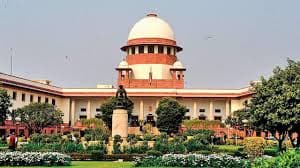 |
|
The Supreme Court of India recently adjourned its hearing on the case of Jagjit Singh Dallewal, a farmer leader currently undertaking a hunger strike, until January 2nd. Dallewal, who has been on strike for 35 days, is protesting for various demands, the specifics of which aren't detailed in the provided article. The Punjab government, responsible for Dallewal's well-being, has been ordered by the court to transfer him to a hospital. However, they have requested an extension, citing ongoing negotiations with the protesting farmers. This delay underscores the complexities of navigating legal processes alongside ongoing social and political movements. The court's decision to defer the hearing highlights the delicate balance between upholding legal mandates and allowing for ongoing dialogue and negotiation in resolving the situation.
The Punjab government's request for a three-day extension suggests that negotiations with the protesting farmers are at a critical juncture. This suggests a willingness to explore non-judicial pathways towards resolving the situation. The involvement of a team of negotiators indicates an attempt to find a mutually agreeable solution, avoiding potentially coercive measures. The location of the proposed makeshift hospital on the Punjab side of the Khanauri border could be a strategic consideration in these negotiations, perhaps offering a compromise that considers both the government’s obligations and the protesters' demands. The success of these negotiations will determine whether Dallewal will be transferred to the hospital in the coming days and whether the court will need to intervene further.
The Supreme Court's response to the Punjab government's request reflects a pragmatic approach. By deferring the hearing, the court allows time for the negotiations to progress without direct court intervention. The statement that the court 'does not want to comment on the discussions with the protesting farmers' underscores the court's intention to remain neutral, focusing solely on ensuring compliance with its previous order. This approach suggests a respect for the ongoing dialogue and an understanding that court intervention at this stage could potentially hinder rather than help the resolution process. The January 2nd hearing will provide an important opportunity to assess the progress made and determine the next steps.
The case highlights the broader context of farmers' protests in India, a recurring theme in recent years. These protests often involve complex issues relating to land ownership, agricultural policies, and economic hardship. Dallewal's hunger strike underscores the urgency felt by protesting farmers and the lengths to which they are willing to go to draw attention to their demands. The government's response, involving negotiations and a request for extension, highlights the political sensitivity of the situation and the potential consequences of escalating the conflict. Ultimately, the resolution of this case will have implications not just for Dallewal, but also for the wider ongoing dialogue surrounding farmers' rights and concerns within the Punjab region and potentially across India.
The use of a makeshift hospital further emphasizes the unique context of the protest. It suggests the protest has a degree of established permanence, as a makeshift hospital implies a long-term occupation of the protest site. This makeshift hospital is symbolic, representing the inherent challenges of providing immediate medical care within a protest environment and the necessity for collaborative efforts between authorities and protestors to ensure the well-being of the hunger striker. The location of this makeshift hospital on the border suggests potential complexities regarding jurisdiction and cooperation between different governmental entities. The success of this arrangement might serve as a model for future similar circumstances, or reveal challenges in providing care within protest environments.
Looking ahead, the January 2nd hearing will be crucial. The outcome will determine whether the Punjab government successfully complied with the court's order to transfer Dallewal to a hospital, or if further legal action will be required. The hearing will also illuminate the progress made in the ongoing negotiations with the protesting farmers, and the overall success or failure of the chosen approach. The resolution of this case could potentially set a precedent for future interactions between the judiciary, state government, and protesting groups within India. It will also serve to highlight the ongoing challenges of balancing legal obligations with the complex realities of social and political movements.
Source: Farmers' Protest: Supreme Court Defers Hearing On Shifting Dallewal To Hospital To January 2
